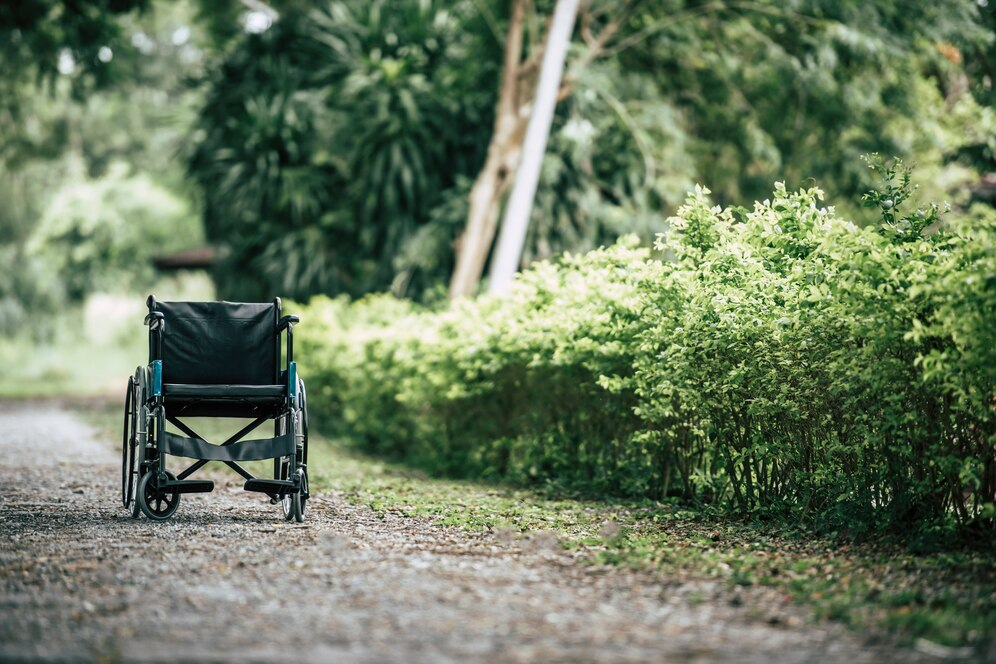The Road to Recovery: How to Get Over Life-Altering Accidents
Life can change in an instant. A sudden accident can turn your world upside down, leaving you with physical injuries, emotional scars, and a completely altered life path. Navigating the road to recovery from such a significant event can be daunting, but with the right approach, it’s possible to rebuild your life and find a new sense of normalcy.
Common Cause of Accidents
- Car accidents, for example, are a leading cause of injuries worldwide. From minor fender-benders to severe collisions, car accidents can result in a range of injuries, including whiplash, broken bones, and traumatic brain injuries. Beyond the physical toll, the emotional impact after a car crash can be significant, leading to anxiety, depression, and post-traumatic stress disorder (PTSD).
- Workplace accidents are another common cause of injury and trauma. From construction sites to office environments, accidents can occur in any workplace setting. Falls, machinery accidents, and exposure to hazardous substances are just a few examples of workplace incidents that can result in serious injuries and long-term consequences for workers.
- Slip and fall accidents, although often portrayed as minor incidents, can also have devastating effects. A fall on a wet floor or an uneven surface can lead to broken bones, head injuries, and chronic pain. For older adults, in particular, slip and fall accidents can result in long-term mobility issues and a loss of independence.
Despite the daunting nature of recovery, it’s essential to remember that healing is possible. With the right approach and support system, individuals can overcome the challenges posed by life-altering accidents and find a new sense of normalcy. Seeking professional help, setting realistic goals, and practicing self-compassion are just a few strategies that can help individuals on their journey to recovery.
Ultimately, by acknowledging the impact of accidents and taking proactive steps towards healing, individuals can reclaim their lives and move forward with strength and resilience.
Here are tips to help you on your journey to recovery after a life-altering accident.
1. Seek Immediate Medical Attention
The first and most critical step after any accident is to seek medical attention. Even if injuries seem minor, it’s essential to get a thorough medical evaluation. Some injuries may not present immediate symptoms but can have long-term consequences if left untreated. Follow your doctor’s advice and attend all follow-up appointments to ensure a comprehensive recovery.
2. Prioritize Your Mental Health
Life-altering accidents often bring not only physical injuries but also significant emotional and psychological trauma. It’s normal to feel overwhelmed, anxious, or depressed in the aftermath of such events. Seeking support from a mental health professional can be invaluable on your journey to recovery. Therapists, counselors, or support groups offer a safe space where you can openly express your feelings and experiences without judgment.
While pampering yourself at a Med Spa Commerce City CO may provide relaxation and self-care, addressing deep-seated emotional wounds requires specialized attention. Mental health professionals are trained to provide the tools and understanding needed to process complex emotions and navigate the path to healing.
Therapy sessions can help you:
- Understand and cope with your feelings of anxiety, depression, or post-traumatic stress.
- Identify and challenge negative thought patterns that may be hindering your recovery.
- Develop healthy coping mechanisms and self-care practices to manage stress and promote emotional well-being.
- Build resilience and inner strength to face the challenges ahead with confidence.
Remember, prioritizing your mental health is not indulgence; it’s an essential part of your recovery journey. By addressing your emotional needs and seeking professional support, you’re taking proactive steps towards healing and reclaiming control over your life.
3. Build a Support System
Recovering from a major accident isn’t something you should do alone. Surround yourself with supportive family and friends who can provide practical help and emotional support. Don’t hesitate to lean on them for assistance with daily tasks or simply to talk about what you’re going through. Building a strong support system can make a significant difference in your recovery journey.
4. Follow a Rehabilitation Plan
Depending on the severity of your injuries, you may need a comprehensive rehabilitation plan that includes physical therapy, occupational therapy, and other specialized treatments. Work closely with your healthcare providers to develop and adhere to a personalized rehabilitation plan. Consistency and commitment to your rehab exercises can significantly enhance your physical recovery.
5. Adjust to a New Normal
Life after a significant accident may never return to exactly how it was before. Accepting this new reality is crucial for moving forward. Focus on what you can do rather than what you can’t. Adapt your daily routines and find new activities that bring you joy and fulfillment. This might involve learning new skills, picking up new hobbies, or finding new ways to stay active.
6. Manage Financial and Legal Matters
Accidents often come with financial and legal implications. It’s essential to address these issues promptly to reduce stress and ensure you have the resources needed for recovery. Consider consulting with a personal injury attorney to understand your rights and options for compensation. Additionally, work with financial advisors to manage medical bills and any changes to your financial situation.
7. Set Realistic Goals
Recovery is a gradual process, and it’s important to set realistic, achievable goals. Break down your recovery into small, manageable steps and celebrate each milestone, no matter how minor it may seem. This approach can help you maintain a positive outlook and stay motivated throughout your recovery journey.
8. Stay Positive and Patient
Maintaining a positive attitude can significantly impact your recovery. Surround yourself with positive influences, practice gratitude, and focus on the progress you’re making. Recovery can be slow, and setbacks are part of the process. Patience is key—give yourself the time you need to heal physically, emotionally, and mentally.
9. Explore Adaptive Technologies and Aids
Depending on your injuries, you may benefit from adaptive technologies or aids that can enhance your independence and quality of life. This can include mobility aids, home modifications, or assistive devices tailored to your needs. Consult with healthcare professionals to explore options that can support your recovery and daily living.
10. Rebuild Your Life with Purpose
As you progress in your recovery journey, it’s essential to consider what gives your life purpose and meaning. This might involve returning to work, volunteering, or pursuing new passions that ignite your soul. However, another crucial aspect of rebuilding your life with purpose is selecting a supportive partner who can walk alongside you through the ups and downs. Choosing a partner who understands your journey and supports your goals can make a significant difference in your recovery process.
As we end.. Remember
Recovering from a life-altering accident is a challenging journey, but with the right strategies and support, it’s possible to rebuild and find joy in life again. Prioritize your health, lean on your support system, and stay committed to your recovery plan. Remember, every step forward is progress, and with patience and determination, you can walk the road to recovery with ease and fulfillment.







